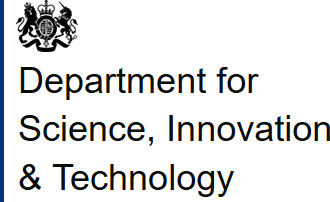The press release issued by the Department for Science, Innovation and Technology on 11 July 2024.
Science Minister declares UK science and technology “open for business” as he was meets counterparts at the G7 Science and Technology Ministerial in Italy.
- Government takes first step to reset ties with key allies at G7 Science and Technology Ministerial in Bologna, Italy
- Ministers signalled significantly strengthened collaboration on research infrastructure that support cutting-edge science and innovation, benefitting researchers worldwide
- G7 Ministers reaffirmed their unwavering support for the science community in Ukraine, agreed to boost research security measures, and to strengthen our collaboration with African countries on R&D to support economic development
Science Minister Vallance declared UK science and technology “open for business” as he was warmly welcomed by counterparts in his first week as the UK’s new Science Minister at the G7 Science and Technology Ministerial in Bologna.
The UK has joined international partners in a commitment to boost research security and collaboration on large research infrastructure, biotechnology and key technologies such as AI supported by supercomputing. The Ministerial underpinned the government’s mission to accelerate innovation, investment and productivity through world-class science and research across the economy.
Representatives from the world’s leading economies also reiterated their unwavering support to Ukraine’s scientists, in the face of Russia’s illegal invasion, as well as a shared commitment to work with African countries on R&D to support their economic development.
This joint undertaking is part of the government’s plan to strengthen ties with international partners and rebuild the UK’s reputation as a strong, reliable partner, while harnessing the power of science and technology for global benefit.
The commitments made in Bologna will further allow us to collaborate with international partners and accelerate investments in cutting-edge technologies, creating the jobs of the future.
Science Minister Vallance, said:
Science is fundamentally international, and to succeed it depends on trust, collaboration and openness. But in an increasingly volatile world – and particularly in light of Russia’s illegal invasion of Ukraine – that trust and collaboration is under threat.
That is why the commitments we’ve made at the G7 are so important. Science can help deliver a safer, more prosperous world, but only when we take steps to keep research secure. When we work together to ensure data is open and accessible, when we pool our resources to develop cutting-edge long term research infrastructure and above all, stand in solidarity and support researchers who are under threat.
During the meetings with his counterparts, Minister Vallance recognised the incredible work of international research infrastructures such as CERN and the Square Kilometre Array Observatory (SKAO). He further suggested that the UK will continue to review the possibility to host a new international research facility as part of the global effort to drive innovation through international collaboration in science and technology.
The Science Minister offered the UK’s support on the FAIR data accelerator pilot, which aims to help researchers make data more findable, accessible, interoperable and reusable.
The Ministerial also focused on biotechnology; a recognition of its importance to the future of the world economy, particularly as AI becomes more widespread, which is rapidly reshaping what is possible in the field. The G7 Ministers committed to promote responsible innovation of biotechnology, including its convergence with AI.
The UK is also working closely with other G7 members on computing capacity, such as through the UK’s recent access to world-class European supercomputing resources through the EuroHPC Joint Undertaking.
The G7’s focus on research security is an incredibly important step. R&D is the engine that powers sustained economic growth, which ultimately improves prosperity and living standards for all working people. But the world is growing more volatile and insecure, with the threats to the research community growing too. The risks posed by theft, misuse and exploitation of sensitive research are evolving – which is precisely why like-minded allies like the G7 need to set the agenda, globally, on proportionally managing this issue.
The UK’s deep and rich science and tech links with this year’s G7 hosts, Italy, exemplify the sort of longstanding international connections the government wants to reinvigorate, and harness to unlock a decade of national renewal. UK and Italian scientists already work together through the European Space Agency, Horizon Europe and the Square Kilometre Array space telescope project. This year, the UK’s Science and Technology Facilities Council (STFC) and Italy’s Consiglio Nazionale delle Ricerche (CNR) celebrate the 40th anniversary of their partnership in pioneering neutron research.
Taken together, the seven G7 member states spent over $1.2 trillion on R&D in 2022 – and even more when the EU is accounted for.
